SUMMARY
This is AI generated summarization, which may have errors. For context, always refer to the full article.
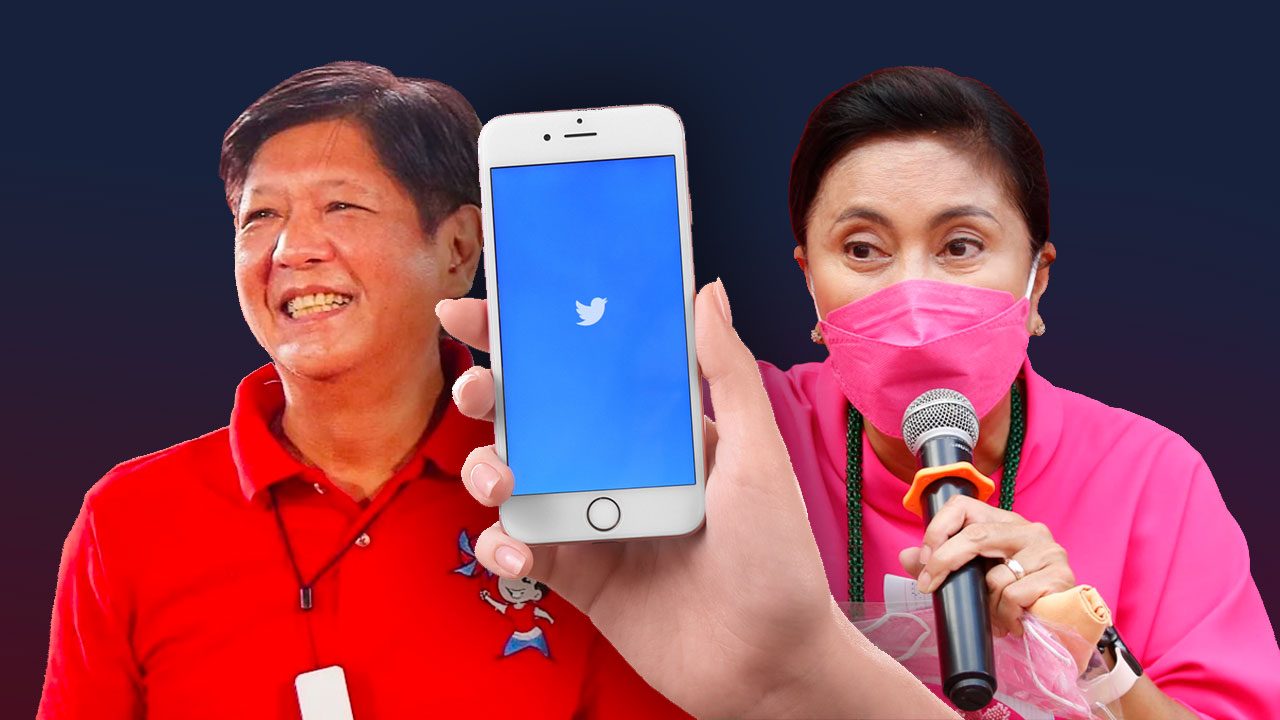

MANILA, PHILIPPINES – A #FactsFirstPH study analyzing the election-related chatter of Twitter users supporting presidential candidates Leni Robredo and Ferdinand “Bongbong” Marcos Jr. showed political polarization that facilitates the spread of fake news and disinformation.
These were findings shared by data scientist Gilbert Chua during a research briefing on Friday, March 18. This study of #FactsFirstPH analyzed the behavior of almost 130,000 Twitter users engaged in election-related conversations to see how Twitter users interact with hashtags around Philippine election-related topics and also to uncover levels of political polarization.
Titled “The Philippine cyber-political divide: Political polarization on Twitter amid 2022 Philippine presidential elections,” the study analyzed Twitter data containing nearly 450,000 tweets with topics – in the form of phrases and hashtags, that trended in a 5-month period from October 1, 2021, to March 12, 2022.
In the briefing, Chua pointed out the following findings of the study:
- Twitter accounts supporting Robredo have large numbers of both tweets and accounts expressing negativity.
- Twitter accounts supporting Marcos exhibit a greater concentration of negativity in both tweets and accounts.
- Robredo-oriented accounts show echo chamber-like behavior as they quote each other primarily.
- Accurate measures of accounts supporting Robredo cannot be done by looking at the number of Twitter accounts primarily tweeting about Robredo alone.
- Classifying Robredo-oriented accounts needs to be contextualized by accounting for their interactions with Marcos-oriented accounts.
The study manually picked 128 Philippine election-related topics from the 10 highest rating trending topics and hashtags in the Philippines as deemed by Twitter for every hour of the same period. The topics were then identified, assigned to their corresponding candidates, and then assigned a polarity (either positive or negative), depending on whether the hashtag promotes the candidate or attacks him or her.
The study found that two parties – those of Robredo and Marcos – explicitly exhibited polarity. It then focused on the Twitter users that tweeted the most about the two candidates, showing that the proportion of negative tweets by Twitter accounts supporting Marcos Jr. was six times higher compared to accounts supporting Robredo. The study also found that Twitter accounts that support Marcos Jr. were three times more likely to participate in negativity than accounts supporting the opposition bet.
However, the study observed changes that started in 2022. Twitter users supporting Robredo mentioned Marcos negatively more frequently starting January 2022, and were the ones largely responsible for the negative tweets related to the former senator. Twitter users also began tweeting more starting March 3.
In January, GMA-7 aired The Jessica Soho Presidential Interviews which started the lineup of presidential interviews, debates, and forums by media organizations. Marcos has skipped multiple election activities organized by media organizations.
On the other hand, Robredo started a chain of campaign rallies that drew thousands in March, like her campaign rally held in Cavite on March 4. During this time, the study also saw a spike in tweets coming from Twitter accounts supporting Marcos that mentioned Robredo, highlighting it as one of the limitations of the tagging methodology. The study said that it is likely that the Twitter users supporting Marcos and which produced tweets mentioning Robredo were truly negative instead of being neutral or positive.
Both parties also mentioned their candidate’s rival in tweets that were likely to be negative towards the rival, but Twitter accounts supporting Robredo had noticeably fewer tweets mentioning Marcos Jr. compared to tweets mentioning the Vice President which came from Twitter accounts supporting the former senator.
To further polarization, the study also analyzed the retweets within a network of Twitter users from both parties. To be considered part of a network, a Twitter account must either be quoted or have been quoted by another account whose tweet became part of the top 10 trending topics.
Majority of public Twitter accounts that quoted users and tweeted about election-related topics tweeted about Robredo more than any other candidate. This behavior, according to the study, suggests a strong tendency to build on one another’s tweets on an exclusive basis, mirroring an “echo-chamber.”
This is in contrast to what was observed in Twitter accounts supporting Marcos. Only half of the Twitter accounts supporting Marcos quoted themselves and the other half of the quotes were attributed to Twitter users supporting Robredo, suggesting a fundamental difference between the behaviors of the two factions due to diversity in engagement.
The study is a part of the work being done by #FactsFirstPH to better understand the flow of disinformation in social media during the election period. #FactsFirstPH is a multisectoral coalition of more than 120 groups that seek to combat disinformation ahead of the 2022 national and local elections. – Rappler.com
Add a comment
How does this make you feel?

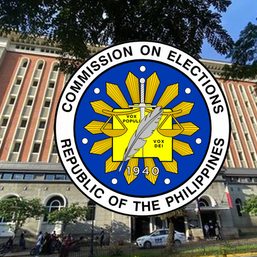
![[Newspoint] Improbable vote](https://www.rappler.com/tachyon/2023/03/Newspoint-improbable-vote-March-24-2023.jpg?resize=257%2C257&crop=339px%2C0px%2C720px%2C720px)
![[Newspoint] 19 million reasons](https://www.rappler.com/tachyon/2022/12/Newspoint-19-million-reasons-December-31-2022.jpg?resize=257%2C257&crop=181px%2C0px%2C900px%2C900px)
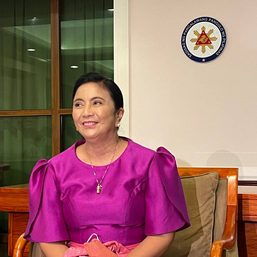






![[New School] Tama na kayo](https://www.rappler.com/tachyon/2024/02/new-school-tama-na-kayo-feb-6-2024.jpg?resize=257%2C257&crop=290px%2C0px%2C720px%2C720px)
![[In This Economy] Marcos’ POGO ban is popular, but will it work?](https://www.rappler.com/tachyon/2024/07/thought-leaders-marcos-pogo-ban.jpg?resize=257%2C257&crop=255px%2C0px%2C720px%2C720px)
![[Rappler Investigates] POGOs no-go as Typhoon Carina exits](https://www.rappler.com/tachyon/2024/07/newsletter-graphics-carina-pogo.jpg?resize=257%2C257&crop=424px%2C0px%2C1080px%2C1080px)



![[DECODED] The Philippines and Brazil have a lot in common. Online toxicity is one.](https://www.rappler.com/tachyon/2024/07/misogyny-tech-carousel-revised-decoded-july-2024.jpg?resize=257%2C257&crop_strategy=attention)




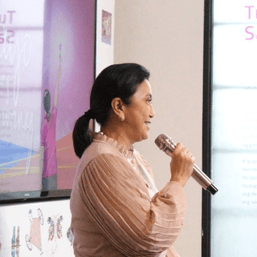

![[Newspoint] A fighting presence](https://www.rappler.com/tachyon/2024/07/thought-leaders-a-fighting-presence.jpg?resize=257%2C257&crop=441px%2C0px%2C1080px%2C1080px)
![[Closer Look] ‘Join Marcos, avert Duterte’ and the danger of expediency](https://www.rappler.com/tachyon/2024/06/TL-trillanes-duterte-expediency-june-29-2024.jpg?resize=257%2C257&crop_strategy=attention)

![[OPINYON] Tungkol sa naging viral na social media conjecture](https://www.rappler.com/tachyon/2024/07/thought-leaders-conjecture-07262024.jpg?resize=257%2C257&crop_strategy=attention)




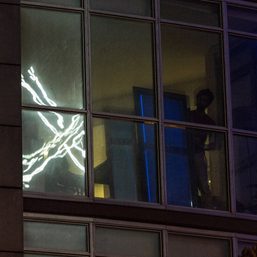


There are no comments yet. Add your comment to start the conversation.